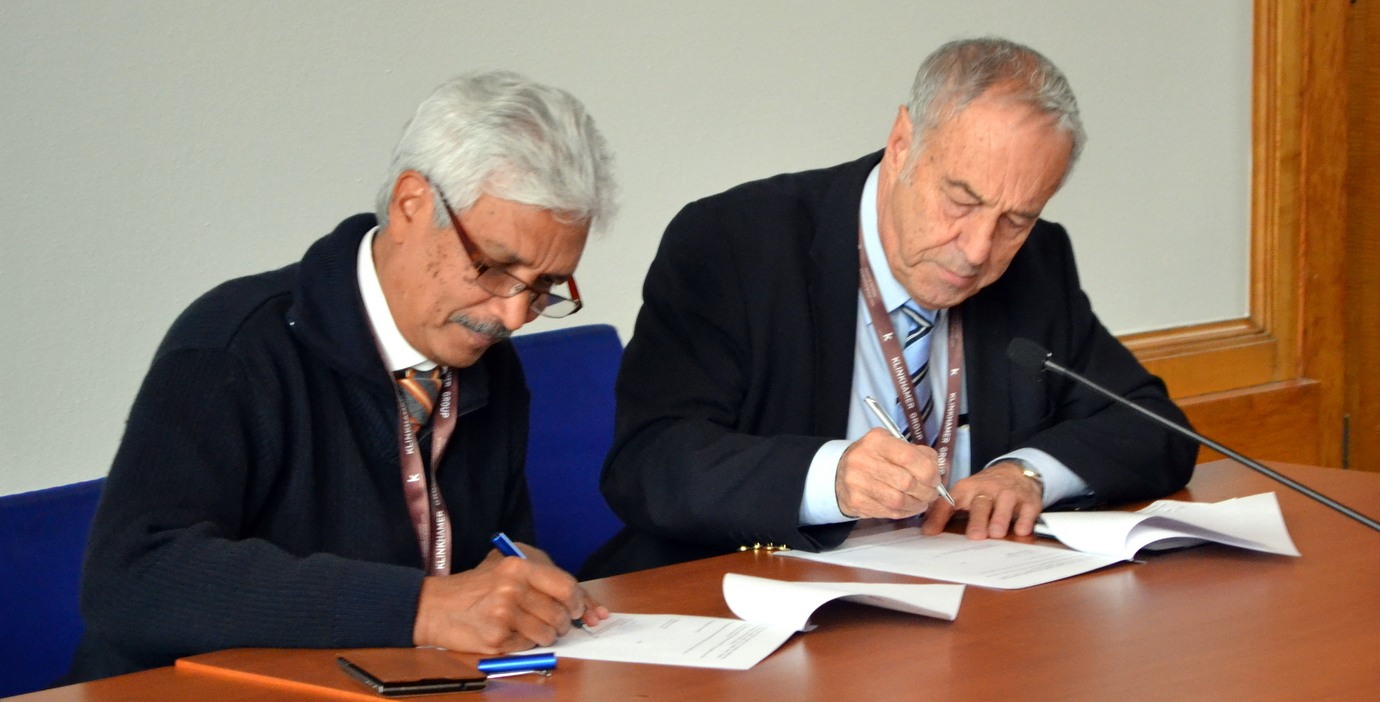
On 2 April, the Worldwide Universities Network (WUN) and the IOM’s Global Migration Data Analysis Centre in Berlin of the International Organization for Migration (IOM GMDAC) signed a collaboration agreement at the second WUN Migration Conference in Maastricht. The purpose of this alliance is to fill key gaps in the global knowledge base on migration in order to better inform global policy and practice. Through a number of combined activities, WUN and IOM GMDAC aim to work together over the coming years to improve the quality of migration data, analysis and research.
The idea to form a strategic alliance was born out of the first WUN Migration Conference in April 2015, which brought together experts from multiple disciplines to discuss how migration could be incorporated into the Post-2015 Development Agenda. Thus, it is particularly timely, given that migration has recently been factored into the global development agenda for the first time through the Sustainable Development Goals (SDGS). Migration is specifically mentioned in relation to SDG 10, which calls for a reduction in inequalities and Target 10.7 which focuses on the need for safe and well-managed migration. There are also several other targets relating to migration, although data and indicators to monitor progress toward these goals are currently very limited. Furthermore, the policy failures of the current humanitarian crisis highlight the need for a clear policy focus in migration research over the coming decade, something that will require collaboration across regions and disciplines.
WUN and IOM GMDAC are well-placed to address these challenges; their combined global reach spans nearly every continent. IOM GMDAC will provide a physical ‘home’ for the immediate research collaboration, which will be led by Ann Singleton of the University of Bristol (UoB; also on secondment in Berlin as Senior Advisor to IOM) and by Frank Laczko, Director of IOM GMDAC. The University of Bristol is particularly well-suited to lead the initiative as it has substantial expertise in poverty, health, inequality and migration, as well as in data science and ‘big data’. Singleton currently leads a team of 20 leading migration scholars in the WUN Migration, Development and Global Transformations (MDGT) initiative, which was jointly conceived by UoB, WUN, and IOM GMDAC.
The WUN/IOM GMDAC collaboration will focus, within a framework of global economic and social transformations on the ‘hidden’ forms of migration, since these are often indicators of emerging dynamics of migration and development. Examples include South-South migration, urban-urban migration and intra-regional migration. The team intends to create a multi-disciplinary ‘evidence alliance’ in the form of an Advisory Group for GMDAC research, in which academics and policy experts from different fields pool the best evidence in relation to migration as a means of informing and influencing future policy and practice. It also intends to deliver a series of complementary funding bids in different global regions to conduct research within a framework of global economic and social transformations on the dynamics, socio-economic effects and policy implications of hidden migration. Other expected outcomes include joint peer-reviewed publications, a special issue of Migration, Policy, Practice, and a global summer school on data and migration policy, beginning in 2017.